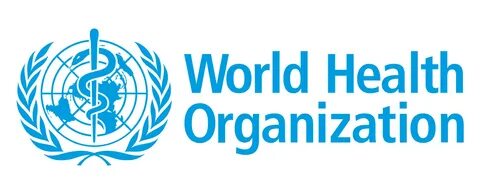
The WHO European Region is experiencing an alarming rise in measles incidence. Between January and October 2023, 40 of the 53 Member States in the Region reported more than 30 000 cases, 30 times more than in all of 2022 (941 cases). The increase in cases has accelerated in recent months and this trend is expected to continue unless urgent action is taken in the Region to prevent further spread of the disease.
“We are seeing a thirty-fold increase in the incidence of measles in our Region, with almost 21 000 hospitalizations and five deaths. This is alarming,” said WHO Regional Director for Europe Dr Hans Henri P. Kluge. “Vaccination is the only way to protect children from this potentially dangerous disease. Vaccination efforts are urgently needed to stop transmission and prevent further spread. Vaccination efforts are urgently needed to stop transmission and prevent further spread. It is critical that all countries are prepared to quickly identify and respond promptly to outbreaks that threaten progress toward measles elimination."
Where gaps in vaccination coverage exist, outbreaks may occur that affect people of all ages.
In 2023, measles is spreading across all age groups, with significant differences in the age distribution of incidence between countries. Overall, two out of five cases are children aged 1 to 4 years, and one in five cases are adults over 20 years of age. Between January and October inclusive, 20,918 people were hospitalized and the two countries reported a total of five measles-related deaths.
This rise in incidence is largely explained by the decrease in vaccination coverage in the countries of the European Region, which occurred in 2020–2022. The COVID-19 pandemic has led to a significant decline in the effectiveness of immunization systems during this period, leading to an increase in the number of children who are unvaccinated or incompletely vaccinated.
According to country-reported data, country-level coverage of the first dose of measles vaccine decreased in the Region from 96% in 2019 to 93% in 2022, and coverage of the second dose decreased from 92% in 2019 to 91% in 2022. In total, more than 1 800 000 infants in the Region were not vaccinated against measles between 2020 and 2022.
The lifting of domestic and international travel restrictions and anti-epidemic measures introduced during the COVID-19 pandemic has increased the risk of cross-border spread of measles and community transmission, particularly in unvaccinated or under-vaccinated populations.
Cases have been reported in many countries that had previously declared measles eliminated as an endemic disease. Countries that have eliminated measles are still at risk of large outbreaks with serious consequences if the virus is imported from other countries unless all communities have consistently high rates of at least 95% routine childhood vaccination.
Local solutions are needed to close coverage gaps at the subnational level.
The alarming rise in measles incidence in 2023 re-emphasizes the importance of identifying and addressing inequities in immunization coverage in all countries to achieve and maintain high immunization coverage in every community. Our future efforts must be based on immunization strategies tailored to local contexts that address identified inequities and ensure equitable access to vaccines.
A number of countries in the Region are strengthening routine immunization efforts and implementing catch-up immunization campaigns. WHO/Europe, in collaboration with partners, is supporting countries with major disease outbreaks to investigate cases, identify and vaccinate susceptible contacts, implement infection control in health care settings, public awareness and communication on issues of concern, strengthen disease surveillance, and planning and implementing immunization as part of outbreak response.
However, each and every country – including those with no current measles transmission – must carefully assess existing immunity gaps and program weaknesses so that immediate action can be taken to address them.
Get back on track to eliminate measles across the Region
Elimination of measles and rubella remains a priority goal for all countries in the European Region. Critical to eliminating these diseases remain high population immunity, closing immunity gaps, and elimination-focused surveillance to monitor cases for appropriate public health action.
Catching up on measles elimination requires countries to achieve and maintain two-dose measles vaccine coverage of greater than 95%. Therefore, achieving high levels of routine vaccination coverage and closing immunity gaps must remain key priorities for all countries.
Source: WHO official website



